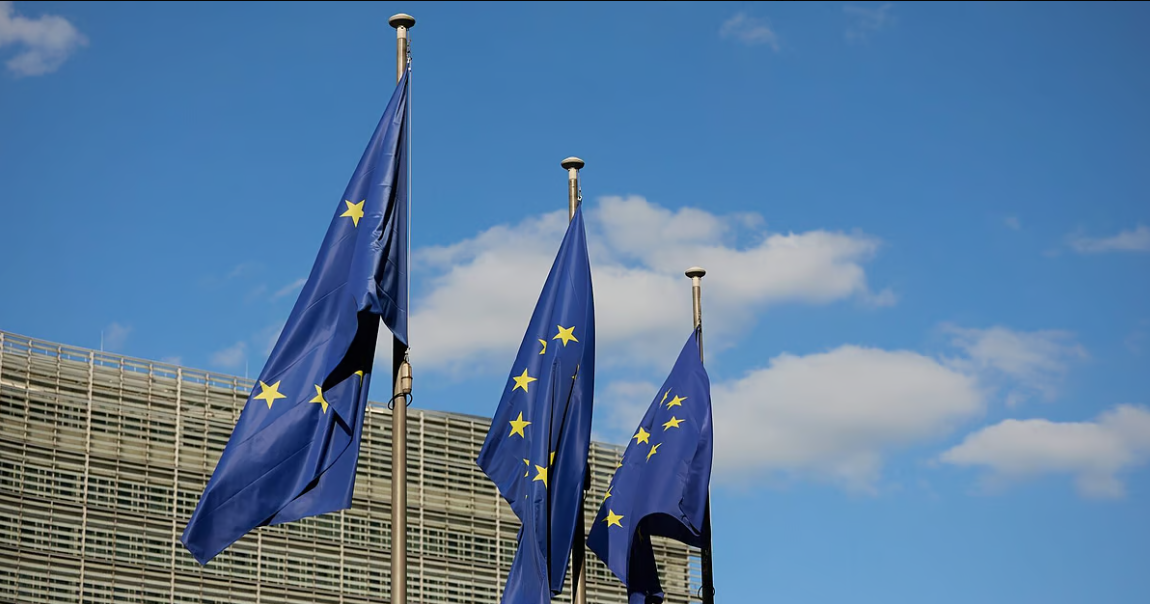Europe Can’t Survive Without U.S. Tech—Shocking EU Admission Stirs Global Debate. In a direct and urgent acknowledgment, the European Union has openly admitted its overwhelming reliance on American technology companies—a move that has triggered global concern, particularly among advocates of digital sovereignty and data independence. As this dependence grows more evident, the pressure on EU nations to secure technological autonomy has never been more critical.
Rewritten & Explained Headings for Better Understanding
1. How Deep Is the EU’s Dependence on U.S. Tech?
The EU relies heavily on American tech corporations—especially in the areas of cloud services, artificial intelligence (AI), cybersecurity, and digital infrastructure. Google, Microsoft, Amazon, and Apple play vital roles in powering European data centers, public-sector IT operations, and even national security systems.
EU Dependency on U.S. Tech Sectors
| U.S. Company | Tech Sector | EU Usage Example |
|---|---|---|
| Microsoft | Cloud/AI | Azure used by EU governments |
| Amazon Web Services | Cloud Hosting | Hosts European businesses & public apps |
| Data & AI Tools | Search, cloud storage, analytics | |
| Apple | Consumer Ecosystem | iOS devices dominate European smartphone market |
| Meta | Social Infrastructure | Platforms like WhatsApp and Instagram dominate |
2. Microsoft’s Strategic Moves to Keep Europe Dependent
Microsoft is aggressively expanding in Europe, investing billions to develop new data centers and promising to legally resist any U.S. orders to restrict services in the EU. This commitment is framed as “trusted tech,” but critics argue it deepens EU dependency further.
Quote from Brad Smith, Microsoft President:
“We will fight in court against any attempt to cut European access to our services.”
3. Can the EU Actually Achieve Tech Autonomy?
Industry experts believe the EU is far from true independence. According to Börje Ekholm, CEO of Ericsson, Europe has fallen behind in 5G, digital investment, and cloud infrastructure. U.S. firms are outpacing EU efforts in speed, innovation, and scale.
Barriers to EU Tech Sovereignty
EU Tech Sovereignty
│
├── Funding Gaps
│ └── Under-investment compared to U.S. & Asia
├── Policy Fragmentation
│ └── Different laws across 27 member states
├── Infrastructure Lag
│ └── Slow rollout of 5G, cloud platforms
└── Talent Deficit
└── Brain drain to U.S. tech firms
4. Geopolitical Tensions Are Fueling Digital Anxiety
Tensions between the U.S. and Europe—especially during the Trump era—have added urgency to the EU’s tech dilemma. With questions about NATO loyalty and global trade imbalances, Europe is now pushing harder to reduce reliance on American firms, including in defense technology.
5. The Microchip Mission: Can Europe Catch Up?
The EU has set a bold goal to produce 20% of global microchips by 2030. However, a scathing report from the European Court of Auditors warned that the strategy is “detached from reality.” Europe still lacks manufacturing capabilities and supply chain resilience compared to Taiwan and South Korea.
Global Chip Investment (2024)
| Region | Annual Investment (USD) | Leading Companies |
|---|---|---|
| U.S. | $52 billion | Intel, NVIDIA |
| South Korea | $45 billion | Samsung |
| Taiwan | $44 billion | TSMC |
| EU (27 countries) | $12 billion | STMicroelectronics, ASML |
6. What Happens If the U.S. Pulls the Plug?
A future political shift in the U.S. could mean restrictions on American tech companies operating in Europe. The consequences would be severe—from service disruptions to massive economic damage across sectors like healthcare, banking, education, and manufacturing.
7. Europe’s Way Forward: Invest or Be Left Behind
To change the tide, the EU must increase investment in its tech ecosystem, create unified digital laws, and support local innovators. Strategic partnerships with India, Japan, and other non-U.S. allies may also help reduce American dominance.
Key Steps Europe Needs to Take:
- Create a single digital market with harmonized tech laws
- Increase funding for European cloud and chip firms
- Accelerate 5G and AI deployments across all member nations
- Retain talent and incentivize homegrown tech innovation
8. U.S. Tech Firms Say They’re “Partners”—But Are They Gatekeepers?
While American firms like Microsoft claim to “empower” European progress, critics warn they hold too much control over EU data, platforms, and user behavior. This power imbalance could shift influence in favor of U.S. regulations, even within EU borders.
9. Expert Opinions: Is Sovereignty Still Possible?
According to the European Round Table for Industry, complete independence is unlikely without long-term, unified commitment across all EU nations. They recommend public-private cooperation and open innovation over isolationism.
10. Conclusion: Digital Freedom Requires Hard Choices
Europe’s admission of its U.S. tech dependence is a wake-up call—not just for policymakers, but for every EU citizen and enterprise. If the continent wants true digital independence, it must act boldly now with coordinated investment, innovation, and reform.
The next few years will determine whether Europe becomes a digital leader or remains a digital follower under U.S. tech influence. The outcome depends not only on governments and corporations but on society’s willingness to prioritize digital sovereignty as a long-term national and economic interest.
[USnewsSphere.com / bl.]





